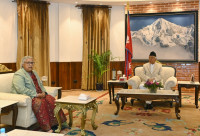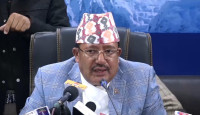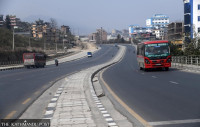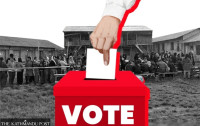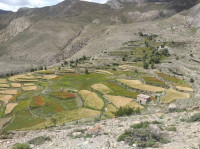National
Nepal Red Cross caught in leadership imbroglio
IFRC says Nepal government has pledged to undertake corrective actions including formation of an independent ad-hoc committee within two months.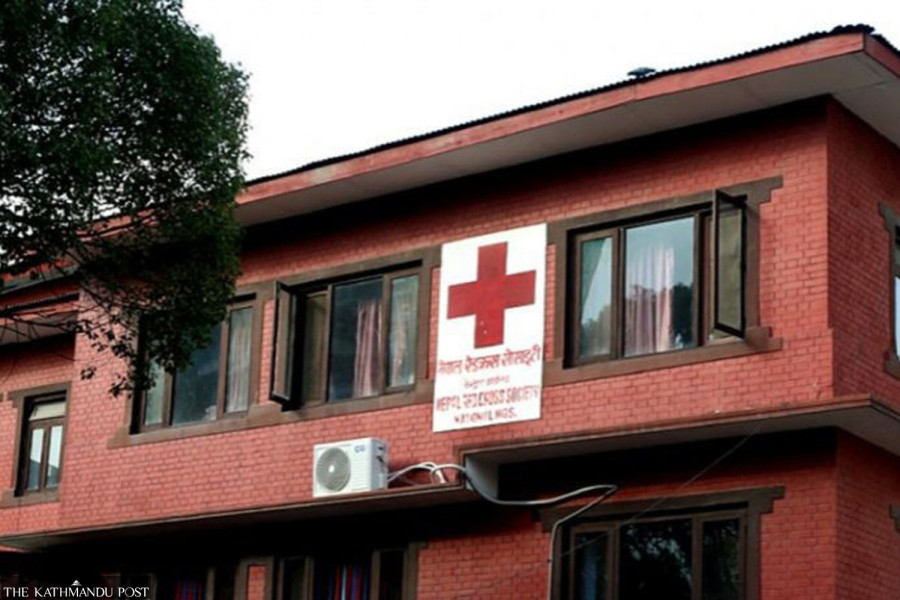
Post Report
The Nepal Red Cross Society is mired in fresh dispute over its leadership as the Central Executive Committee faces dissolution, weeks from the end of its two-year tenure on July 17.
The existing leadership had scheduled a general convention for June 25-27 to elect a new committee. But that has been called off due to intervention by the Ministry of Women, Children and Senior Citizens. The current committee was elected on 18 July 2023.
Two parallel committees existed until they reached a reconciliation on October 20, 2024.
Netra Prasad Timilsina, who is serving as Nepal’s ambassador to Malaysia, led a parallel committee. Ahead of his parliamentary hearing, a case was sub judice in the Supreme Court seeking his continuation as chair of the Nepal Red Cross Society. Timilsina was accused of running a parallel committee even after his tenure ended.
Sudarshan Prasad Nepal, chairman of the NRCS since 2023, calls the clarification sought by the ministry over a number of allegations a ploy to dissolve the executive committee and appoint an ad-hoc panel as favoured by Prime Minister KP Sharma Oli.
Red Cross in Nepal is a reputed organisation with committees around the country. The organisation is recognised as a reliable partner of the public offering urgent assistance in times of disasters.
Politicisation has been at the heart of the humanitarian agency’s disputes in recent years. Objecting to reports of sharing of positions based on political affiliation, the International Federation of Red Cross and Red Crescent Societies (IFRC) has reprimanded the NRCS several times and instructed it to take corrective measures.
In the latest episode, the IFRC stated on Monday that its governing board had decided to welcome the Nepal government’s support in resolving the governance crisis at Nepal Red Cross Society.
The NRCS has historically been among the IFRC’s strongest members, with extensive volunteer presence throughout the country and a track record of effective public health and disaster risk management action, the statement said.
In recent years, however, disputes among different groups claiming the right to serve as NRCS’ central executive committee, as well as evidence of the infiltration of politicisation in the NRCS’ internal elections and processes, in violation of the Fundamental Principles of the International Red Cross and Red Crescent Movement, have created an ongoing crisis, the IFRC stated.
In response to an IFRC request, the government has committed to corrective actions within a two-month timeframe. This includes the establishment of an ad-hoc independent committee tasked with reviewing and amending the NRCS’ constitution, as well as organising elections for a new and impartial central executive committee of the NRCS, it noted.
At the government’s request, the IFRC has agreed to place on hold institutional sanctions against the NRCS for that period.
The IFRC welcomed “this constructive engagement and the Nepal government’s intention to enhance the integrity and independence” of the NRCS. It hailed the steps as vital for preserving trust in the Red Cross in Nepal and protecting its fundamental principles, including neutrality.
The IFRC pledged to continue to monitor the situation in contact with the authorities. It, however, warned of sanctions “if there are no positive developments in two months”.
Recently, there have been efforts to save the image of the charity organisation. The five individuals asked by the IFRC have stepped aside and vowed not to contest for leadership positions in the next election.
The office bearers who respected the IFRC’s call to step aside are Sudarshan Prasad Nepal (chairman), Bhupati Lal Shrestha (general secretary), Manoj Kumar Thapa (deputy general secretary), and central executive committee members Vinod Kumar Basnet and Narayan Timilsina.
To avoid the leadership vacuum, Chandrakala Karkee, the senior vice chair, has been mandated to assume leadership roles including to make efforts to tide the organisation over the crisis, according to a letter sent by Nepal and Shrestha to Kate Forbes, the IFRC president, in Geneva, Switzerland.
Shrestha says that the decision was driven by their goal to save the organisation, especially after there had been so much controversy and increased scrutiny by IFRC. Shrestha oversaw Red Cross activities for decades in his home district Tehrathum before he climbed the ranks of the organisation.
NCRS’s legitimacy was threatened also due to its failure to renew its registration. After the lapse of five years, the working committee obtained the certificate of renewal from the District Administration Office, Kathmandu on January 3 last year.
The current state of politicisation in Nepal Red Cross began when elections failed to take place to choose leadership of the organisation. On December 29, 2021, the then Sher Bahadur Deuba government appointed a 29-member ad-hoc committee led by Sudarshan Nepal dissolving the Netra Prasad Timilsina-led committee that had been installed by preceding prime minister Oli three years ago.
Timilsina withdrew the case from the Supreme Court paving the way for reconciliation between the two parallel committees.
The IFRC on Monday stated it remains dedicated to supporting the communities in Nepal and the NRCS in delivering principled humanitarian assistance nationwide, while upholding the fundamental principles and standards of the International Red Cross and Red Crescent Movement.
Acting chairperson Karkee told the Post that the IFRC had intervened in the NHRC’s leadership issue with a motive to appoint former Red Cross staff and Transitional Committee members as an ad-hoc committee free of politics. The Transitional Committee coordinates between the NRCS and the IFRC and other Red Cross partners on issues including assistance.
The government also wants to appoint such a committee on political sharing among the ruling parties but hesitates to do so fearing a court case in its wake, she alleged.




 12.17°C Kathmandu
12.17°C Kathmandu
